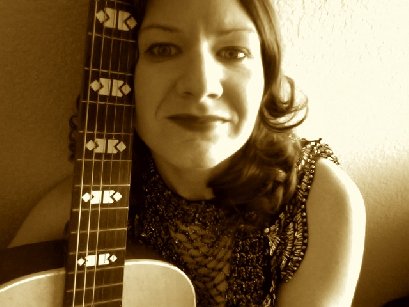I have written a couple hundred songs over the years. And it’s important to me that they find a way out into the world. At my age, I know I won’t have a career as a performing songwriter, but I want the songs to have a life outside my computer. It would be lovely if they were covered by established recording artists or bought for synchronization in TV and/or films. I think that is probably unlikely. But, it is not without possibility.
I don’t have the money to go into a studio to pay musicians, arrangers, engineers and producers to record my songs the way I hear them. I don’t have the money to then have them mixed and mastered. And I don’t have the money to print hundreds of CD’s or vinyl records for distribution.
Nevertheless, right now I have fourteen 6-song EP’s that can be found on all the major online music stores and streaming services, like Spotify, YouTube, Apple Music, Amazon Music, iTunes, Tidal and the like. I have four more in the works. You can audition my music on Bandcamp (https://davidguilbault.bandcamp.com/).
So, how did I get my music recorded, distributed and (somewhat) heard? I surrendered the process to multi-talented musicians I know who are arrangers, producers, engineers and multi-instrumentalists, all wrapped up in one. I have relied on the talents of folks like Chris Klimecky, Paul Beaudry, Colin J Nelson, Jeremy Serwer, Matthew Emerson Brown, Karl Benitez, Griffin James, Eric Padget, Jason Goessl, and now, JD Cotton.
This is how it works. I find six of my songs that I believe hold together in some lyrical theme. Then I think of one of these folks who might have a particular ear for the essence of that music. Maybe they would bring a country feel, or a pop sensitivity or a dark tenor to the music. Living on a fixed income, I negotiate a flat fee for them to arrange, produce, record and mix the six songs. In most cases, they play all the instruments.
I give them scratch guitar and vocal tracks recorded to a click track. I either do that at home on my computer or, preferably, I come to their project studio to lay down the scratch tracks. Then I essentially wash my hands of the project.
Because I am not paying them what they should rightly earn playing the multiple roles of musician, arranger, producer and engineer, I give up creative control of the final arrangements. They are free to produce the songs any way they hear them. I don’t meddle in the process. And there is no deadline for them completing the project. I have had some EP’s take up to two years to complete.
When these masterful musicians have laid down all the instrumental tracks, I come back and do a final vocal on a good mic, trying my best to capture the feel of the music they have created with my singing. Many times I am surprised by arrangements that I would not have expected or would not have created if I were doing the songs myself. In only one case (with none of the folks mentioned above) have I been disappointed.
I still have to pay to get the final mixes mastered, but there are now algorithms online that can do that for very little money.
Like I said, the crux of these deals is that I surrender the music to the producer. Since I am not paying them market rates, I am not going to waste their time asking for revisions. What I get is my song matched with their musical talent.
What that means is that each collaboration has a unique sound, reflecting the tastes and talents of the individual producers. The downside of that is that I haven’t established my personal performance style across these recordings. But, this process is about getting the songs recorded professionally and out onto the Internet, and not about developing and promoting a profile as a recording artist.
I use DistroKid as my distributor. You upload your music to them digitally and they get the albums in all the major stores. Getting folks to find the songs, however, listen to the songs and buy the songs is another ball of wax altogether. For the most part, my music is still unheard. Which is another reason not to spend ten thousand dollars on a studio produced CD that few radio stations are going to play and few people are going to buy.
So, I am grateful to the lovely and talented collaborators who have been generous and kind with their time and talent in taking on my cut-rate projects and producing them with such feeling and expertise. For better or for worse, I have at least a third of my repertoire out there in the ether. And, if my music should ever catch fire and actually make money, I have every intention of sharing the proceeds 50/50 with these wonderful musicians.
I hope you find a way to get your music out into the world. In the meantime, please be safe and well, and keep on writing and performing. Music is indeed a labor of love. Getting paid for that labor would be sweet.

- “TRUE” – Country Rock, Produced by Chris Klimecky: https://davidguilbault.bandcamp.com/album/true-country-rock
- “OVER” – Indie Pop, Produced by Colin J Nelson: https://davidguilbault.bandcamp.com/album/over-indie-pop
- “HERE” – Country Rock, Produced by Matthew Emerson Brown: https://davidguilbault.bandcamp.com/album/here-country-rock
- “AWRY” – Country Swing, Produced by Matthew Emerson Brown: https://davidguilbault.bandcamp.com/album/awry-country-swing
- “GONE” – Country Folk, Produced by Paul Beaudry: https://davidguilbault.bandcamp.com/album/gone-country-folk
- “OPEN” – Parlor Roots, Produced by Jeremy Serwer: https://davidguilbault.bandcamp.com/album/open-parlor-roots
- “BARE” – Baritone Ballads, Produced by Jason Goessl: https://davidguilbault.bandcamp.com/album/bare-baritone-ballads






